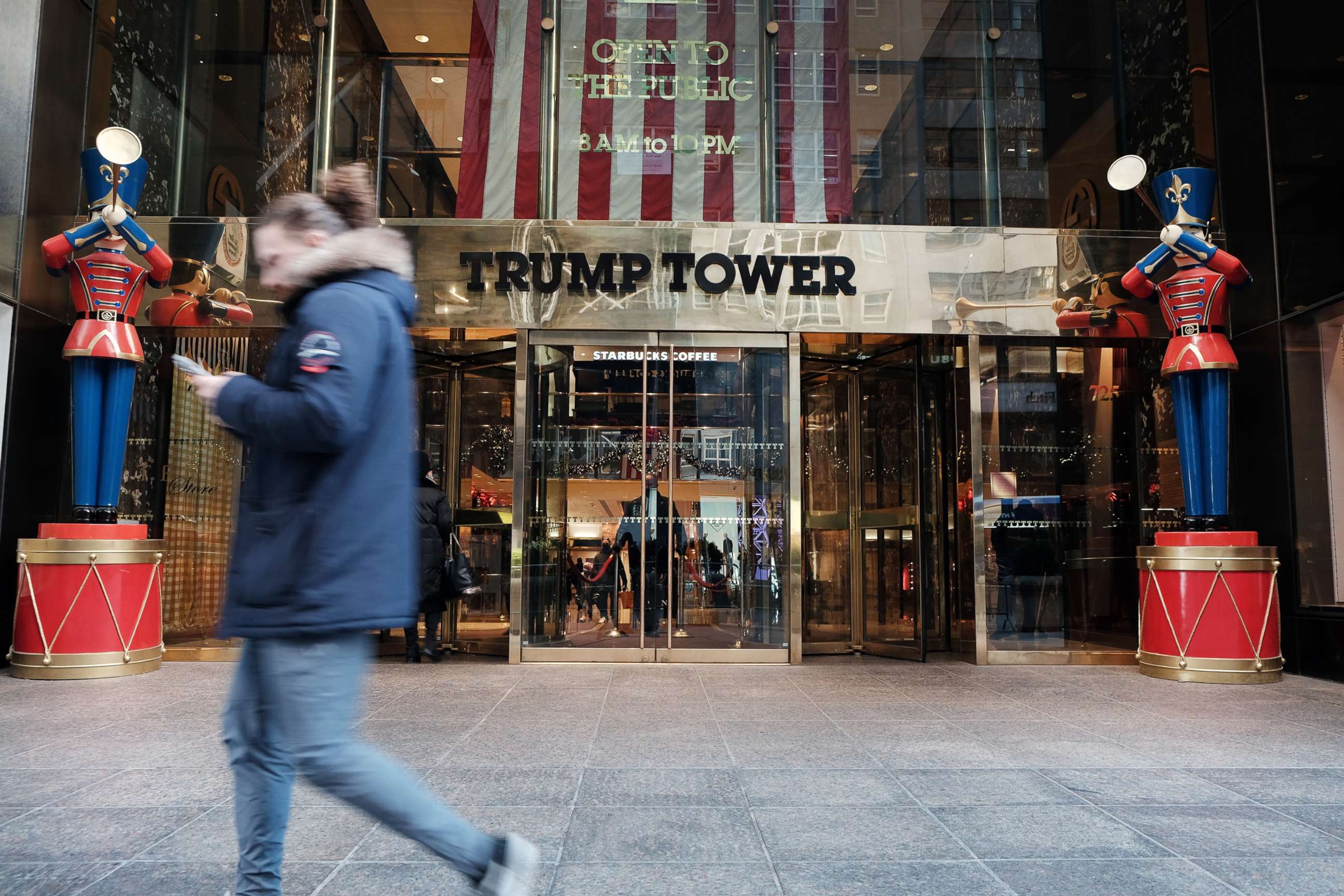Jury begins deliberations in Trump Organization criminal fraud trial
The company is accused of illegally providing tax-free perks to some executives.
A Manhattan jury began deliberations Monday on whether to convict former President Donald Trump's namesake real estate company of criminal tax fraud.
The deliberations began Monday morning following lengthy instructions on the law by Judge Juan Merchan, who reminded jurors that they pledged to set aside their personal opinions about Trump himself.
"You promised the attorneys for the defendants, the prosecution, and this court that you would set aside any personal opinions you may have about Donald Trump and his family," Merchan said. "You also stated that you understood that Donald Trump and his family are not on trial here."
Two entities of the Trump Organization -- the Trump Corporation and the Trump Payroll Corporation -- are on trial for paying the personal expenses of some executives without reporting them as income, and for compensating them as independent contractors instead of full-time employees.
The jury sent one note to the judge asking about the elements required to prove conspiracy, before deliberations ended for the day. The jury is scheduled to reconvene on Tuesday.
Although Trump is not a defendant, his name came up repeatedly during the trial, and the jury saw checks he signed and memos he endorsed. The former president has publicly denied any wrongdoing.
Defense attorneys asked witnesses roughly 60 times about Trump's knowledge of the tax scheme that his company is charged with, as they sought to show that Trump was in the dark about the fraud being committed by his top executives, primarily Allen Weisselberg, the Trump Organization's longtime chief financial officer who pleaded guilty in August to charges that he skirted taxes on nearly $2 million in company-provided perks that included the rent on his Manhattan apartment, the leases on cars for himself and his wife, and tuition for his grandchildren.

Defense attorney Michael van der Veen said in his closing statement Friday that jurors "heard no evidence in this case that Mr. Trump or any of his children were aware of anything improper."
But prosecutors contended that Trump explicitly sanctioned tax fraud when he signed off on part of the scheme.
"This whole narrative that Donald Trump is blissfully ignorant is just not true," assistant district attorney Josh Steinglass said during his closing statement.
Prosecutors believe the Trump Organization is guilty because the arrangements that Weisselberg and other company executives made to evade taxes included some intent to help the company pay less in salaries, bonuses and payroll taxes.
The defense argued the executives never intended to benefit the company and that the scheme the executives hatched was motivated solely by personal greed.
The distinction is important because the judge told jurors that the Trump Organization is only guilty if a high managerial agent of the company acted in behalf of the company and within the scope of his employment.
"An agent's acts are not in behalf of the corporation if they were undertaken solely to advance the agent's own interests," Merchan said. "If the agent's acts were taken merely for personal gain, they were not in behalf of the corporation."
The Trump Corporation and the Trump Payroll Corporation are each charged with scheme to defraud, conspiracy, criminal tax fraud and falsifying business records.
A conviction would carry fines of up to $1.7 million. But collateral consequences of a conviction may be more significant to Trump, who is seeking a second term in the White House. Banks could call in loans and business partners could cancel contracts if their internal policies prevent them from doing business with felons.
Even absent a conviction, the trial revealed potentially embarrassing details about Trump, including that he reported nearly $1 billion in operating losses over a two-year period in 2009 and 2010.
Trump's outside accountant also testified that Trump reported losses each year for the decade between 2009 and 2018, some of the same years Trump was touting his business acumen on reality television and on the campaign trail.




